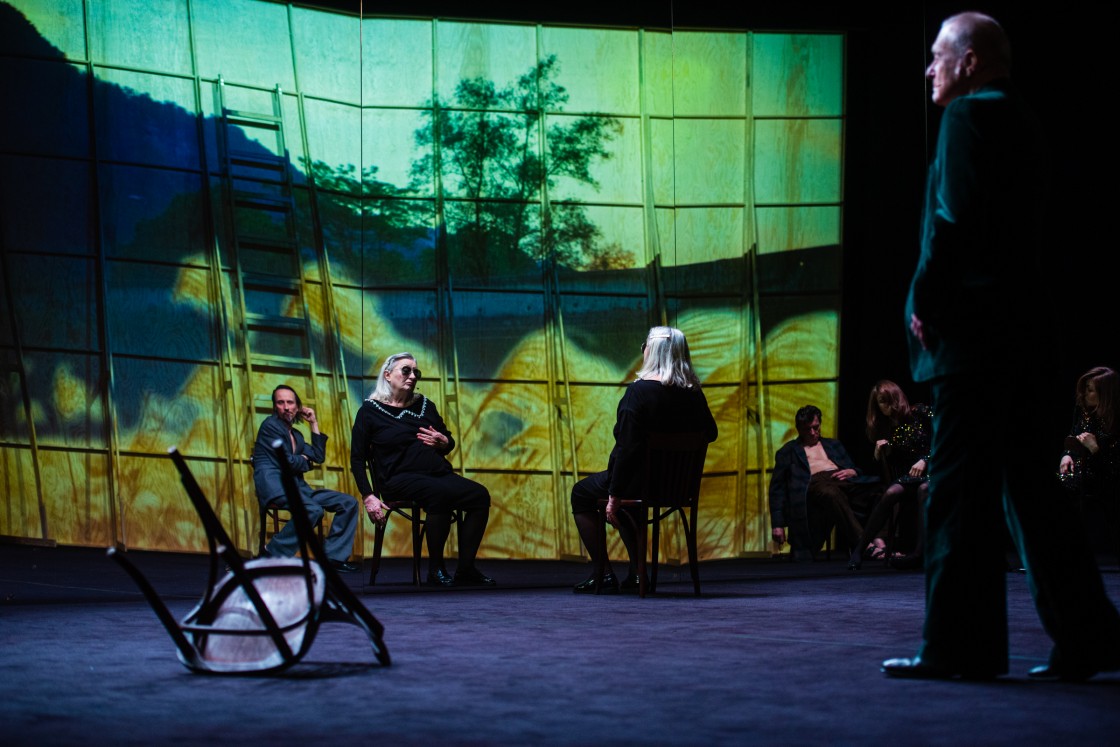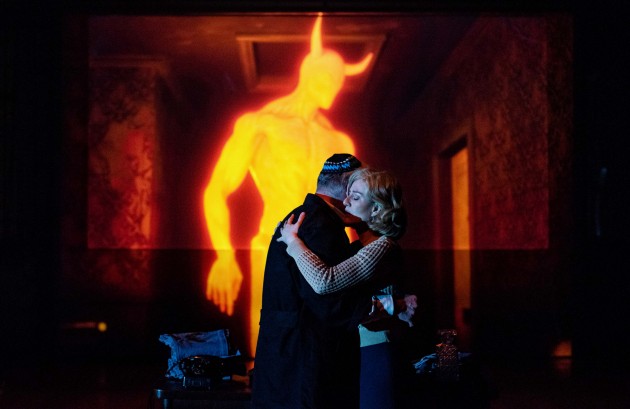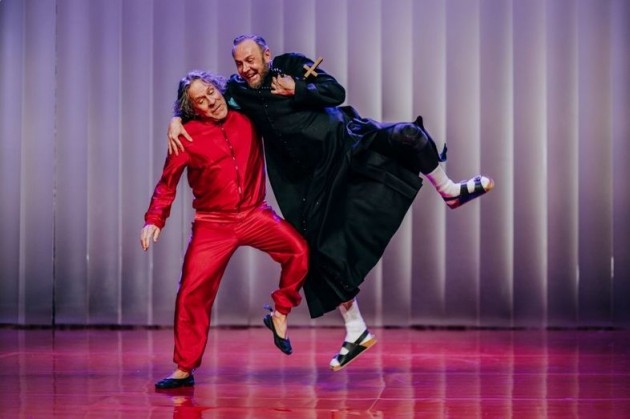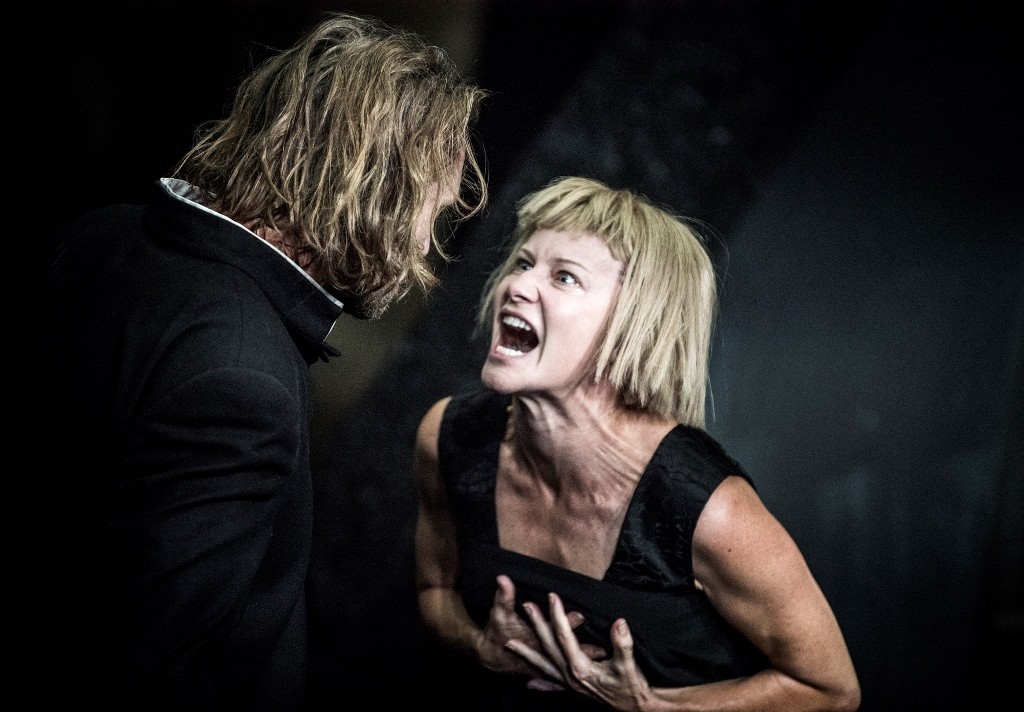Ebbing and flowing
Jakub Moroz and Przemysław Skrzydelski sum up the theatrical season 2020/2021.
Skrzydelski: The last theatrical season was bizarre and tiresome. Things were difficult, and repertoires went through many changes. Lockdowns and restrictions kept coming back. And I find myself quickly forgetting what happened over the last year. It's probably a defence mechanism of sorts, an attempt to deny or rationalise the whole situation.
Moroz: Theatre and theatre life have begun returning to normal, but it might be an illusion because the effects of this distressing period will not be felt until the coming season. I also hoped that Polish theatre would react more expertly to what had happened. And yet, among the announced new plays, I did not see any that would invite reflection on this unusual period.
Skrzydelski: You demand deliberations when this season was more about catching up with premieres and putting on shows that had been cancelled time and time again.
True, everyone hurried to pick up the pieces and make up for their losses, but even so, did anyone say anything significant about theatre? I mean like answer the question of whether theatre is needed and how to make it.
In our interviews with artists at the turn of 2021, we tried to touch on this topic, but it proved very challenging: I could sense a lot of fear about the future, and the prevailing question was whether it would be at all possible to function normally again. A broader discussion about theatre kind of died down. What's more, everyone was afraid, including us.
Skrzydelski: At some point, and I think we could feel it especially in November and December, we were struck by a sense of disorientation. A large number of discussion-worthy topics came up, but in the end, everything boiled down to whether things would return to the way they had been.
Moroz: In retrospect, this seems a little naive.
Skrzydelski: Of course, things will be like they used to. For the moment, I'm rejecting the idea of an invasion by another super virus. In short, if it doesn't suddenly turn out that another prolonged lockdown is needed, then things will be as they were, if not more so. As we know, we need many experiences for nothing to change.
Moroz: So things are getting worse from season to season, and there are more plays about nothing or only those for a small group of experts?
Skrzydelski: How shall I put this... Something like that.
Formally, the only thing likely to change is that theatres will receive less funding, both on the local and central levels. Many projects won't happen. Smaller productions that are cheaper and easier to manage might be significant. Is it a good thing? I don't know.
But, if you want broader reflections on the condition of contemporary post-pandemic humanity, then you can always look forward to the return of Luk Perceval, or another giant. But it won't happen anytime soon.
Moroz: Perceval. Now that's a name that stays with you after this season.
Skrzydelski: All in all, there are a handful of good productions. But Perceval has set a standard that's unattainable in Polish theatre. We are not very used to such discussions as his "3STRS" (co-produced by The Helena Modrzejewska National Stary Theatre) provoked in TR Warszawa. We've grown unaccustomed to such breadth and scale.


Moroz: It feels like each time foreign creators come to Poland, they do so to boost theatre rankings.
Skrzydelski: Kind of, yeah. But then Krzysztof Warlikowski and his "Odyssey. A story for Hollywood" at Nowy Teatr, comes in a close second. A strong contender, it can easily compete. Even with all of its contestable issues, for me those being the repetitiveness of themes and arrangement of space.
Moroz: I had hoped Warlikowski would reject the compelling urge to make predominantly festival theatre addressed mainly to audiences in France, the Netherlands, or Belgium.

Skrzydelski: And is there a play that you would praise either more or less, now that some time has passed? Jan Klata's "Red Noses" is that kind of a show for me. Several months later, the four-hour-long performance from Teatr Nowy in Poznań seems even more loaded with meaning and ambiguity. It feels more intense to me. Moreover, the acting in that play is a topic for a separate discussion altogether. All actors of Teatr Nowy are astounding.
Moroz: That's true, but personally, I remember more single moments from less successful performances or even noble failures. I'm thinking, for instance, about Monika Strzępka's "M.G" (Polish Theatre in Warsaw). I'm still amused by how the actors "jostle" their way on the stage in Strzępka's and Demirski's plays. I enjoy watching the fun they have with their onstage personas.
Skrzydelski: But I think that Paweł Demirski's language is wearing off; his formulas are growing tedious. And anyway, when a duo makes a diagnosis, it always comes late. It often happens that Strzępka and Demirski take up topics that might not have been done in theatre, but have certainly been covered in, say, opinion journalism. As for Strzępka's favourite actors - I agree to some extent, but it sometimes becomes a mockery. Don't forget that we've also seen "Jeńczyna" (Captiveal) in Stary Theatre.
Moroz: Fortunately, I've managed to forget about that.
Skrzydelski: So, we have established that Perceval is a phenomenon and Warlikowski remains worthy of broader discussions (and certainly without the special treatment he often gets). And what was your biggest disappointment of this season?
Moroz: The list is long. It's clear. But I think the winner is Grzegorz Jarzyna with his "2020: The tempest" at TR Warszawa.
Skrzydelski: It's a paradox. TR has put on the best show (co-produced by Stary Theatre) but also the worst one. Of course, this wretched "The Tempest", better suited for online presentation than real theatre, is not the single worst thing this season, but I'd like to point out that expectations are always much higher for artists like Jarzyna. Some people are expected to do more, and that's all there is to it.
Moroz: In a sense, Teatr Studio also didn't disappoint us.
Skrzydelski: We didn't come in expecting much, so we weren't disappointed. For the past several years, the director Natalia Korczakowska has been doing her best to prove that theatre can be completely expendable. Teatr Studio is a non-stop disaster.
Moroz: We're letting our criticism run rampant. How about we return to discussing successes?
Skrzydelski: All right. What was the best role/actor of the season?

Moroz: Among actresses, my vote goes to Małgorzata Kożuchowska as the eponymous "Mother Joan of the Angels" in Wojciech's Faruga incredibly captivating adaptation and Danuta Stenka as Charlotte in "Autumn Sonata" directed by Grzegorz Wiśniewski. Both shows were played at the National Theatre in Warsaw. Besides, for me, "Sonata" is also the event of the season. I love theatre like that: intimate, psychological, close to the viewer. It was a very intense and personal experience for me.
Skrzydelski: Agree, especially about Kożuchowska.
Moroz: All in all, the National Theatre went through a bizarre season. They had two great productions, one flop - Jan Englert's "Three sisters" and one play that should have never made it to the big stage - Lena Frankiewicz's adaptation of "The Picnic at Hanging Rock".
Skrzydelski: Then, when it comes to details, we differ in our assessment of "Three sisters" - there's something good about this adaptation. Most of all, the actors of the National Theatre never disappoint. However, I find the way in which the play attempts to deal with the current reality a bit vague. Perhaps it's because the premiere was postponed several times. And what was the best male role?
Moroz: For me, that's Jacek Beler as Vershinin in Perceval's "3STRS". The character's helplessness in his futile search for love moved me. He shows despair, hope and self-exposure bordering on exhibitionism, but he never crosses that line.
Skrzydelski: I do not doubt that Zygmunt Józefczak as Tuzenbach from this play will stay with me for a very long time. You just don't see this kind of acting anymore. But we've discussed it at length in our conversation about Perceval, to which the readers are welcome to refer. Another fantastic performance was Andrzej Chyra as Martin Heidegger in a single but very long scene in Warlikowski's production. In general, Chyra's appearance in the theatre is too limited. On average, he appears in Nowy Teatr's premieres only once every two years.
Moroz: Are we going to list our individual picks for the best set design, music, costumes, stage movement, and lighting setup, or will we refer to our twenty-three conversations about shows in 2020/2021?
Skrzydelski: To put it briefly, but truthfully, let's just say that in terms of music, our picks are Perceval (music by Karol Nepelski) and Warlikowski (with music by Paweł Mykietyn). And as for set designs and philosophy of space arrangement, our vote, surprise surprise, goes to Perceval and Philip Bussman's work. Perhaps also Wiśniewski and his "Autumn Sonata", with music by Mirek Kaczmarek.
Moroz: I'd add music from "Mother Joan of the Angels” (composed by Teoniki Rożynek). But we're forgetting one very important thing.
Skrzydelski: Right. After all, we've recently seen Jan Klata's "Balcony", but because we've extensively discussed Klata this season and because Jean Genet is a complex literary topic, we decided that we will open our 2021/2022 conversations with this play. That's going to happen on 4th September. Of course, provided that we return from our holidays. And that the fourth wave doesn't sweep us along the way. Apparently, it's already here, though we can't see it yet. That 4th September...I just don't know…
Moroz: You jest, but I still want to be serious.
Skrzydelski: I'm not stopping you.
Moroz: I would like to once again encourage all viewers to see "The Demons" directed by Paweł Miśkiewicz and "Flights" by Michał Zadara. As far as I know, these productions are set to return to the stage very soon, but you can book your tickets in advance. It's worth it.
Skrzydelski: So, right after the holidays, we're headed for Cracow, Stary Theatre and then Warsaw, Powszechny Theatre. Or the other way round.
Moroz: May this coming season bring us great theatre any time, anywhere.